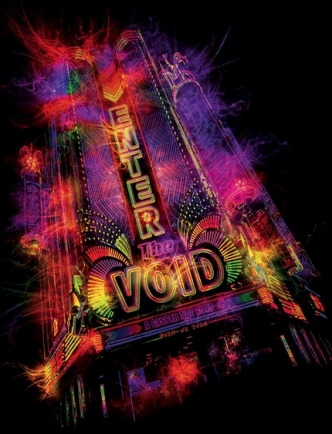I was apprehensive about seeing “Antichrist,, but not primarily for the reason that you might expect. Yes, the film’s allegations of rampant misogyny (not a new accusation for controversial filmmaker Lars Von Trier) and graphic violence were daunting, but I also heard that the Von Trier’s new work was linked thematically to “Melancholia,” a film I found almost unbearably aloof and pretentious.
I am, however, a fan of the director’s earlier works “Dancer in the Dark,” and especially, “Breaking the Waves” (the film that made me fall irrevocably in love with Emily Watson), so I decided to give this one a go. This movie didn’t make me fall in love with anybody, least of all the characters (though the acting is very good.) It made me want to hit something. Or crawl into a fetal position and cry.
Not that “Antichrist” is a bad movie. It’s certainly a well-made one. Willem Defoe and Charlotte Gainsbourg act their hearts out as the otherwise unnamed He and She. It’s just… let me put it this way. Von Trier was in a period of deep depression during the conception of this film. The production was a disaster. Lars Von Trier’s hands shook as he held the camera. To see this movie is to take a close look into its creator’s tormented soul.
Don’t watch this movie if you have a weak stomach. On second thought, don’t watch this movie if you have anxiety, panic attacks, a love of children (the cute, cherubic youngster kicks it pretty early on in this dark story), or if you want to have a normal, functional life and healthy relationships. This coming from the girl who laughed at “The Human Centipede II” and was barely fazed by Haneke’s “Funny Games.”
I know. By building it up, I’m just making you want to watch it more, so I stop here. It’s like the Mormons who tell you “Don’t watch that, it’s filth!” So you go see it, naturally. The thing is, I’m not telling you not to see it. I’m just saying, tread carefully. What might be harmless for one person could be the last straw on the road to a mental breakdown.
In a visually rapturous black-and-white opening, He and She (Willem Defoe and Charlotte Gainsbourg) have passionate sex while their infant son, Nic, escapes from his crib and falls out the window (the similarities between Nic’s fate and the death of Eric Clapton’s son need not be mentioned.)
She collapses at the funeral and is taken to hospital. In He’s infinite wisdom, he pulls She out of the care of the government and decides to take her to the place that she fears the most (“Trust me- I’m a therapist”) — the woods. To be specific, one place in the woods: “Eden,” a place She went with her son to write a thesis.
Almost immediately, She’s verbal taunts begin: He wasn’t there, He is indifferent to his son’s death, He’s cold and distant. Meanwhile, nightmares start to penetrate Eden’s placid exterior. And they’re not the only things doing so — He and She engage in weird, compulsive sex acts and mind games.
I didn’t love “Antichrist”- I’m not even sure I liked it, but it taps into a sense of primal fear like few films I’ve ever watched. However, the meaning is as obscure as the film is unnerving. One thing I notice is the unsexiness of intercourse and the frequent use of sex as a temporary distraction and means to an end. Does this mean the film’s theme revolves around sexual politics? I don’t know? The meaning is akin to an unsolvable problem.
“Antichrist” is not fun, entertaining, or easy, but it gets under your skin and creates a creeping sense of dread, so a certain respect for it must be retained. Because Lars Von Trier isn’t fun, entertaining, or easy, but he pours out the dark contents of his heart for the world to see and finds strength in the darkness.















